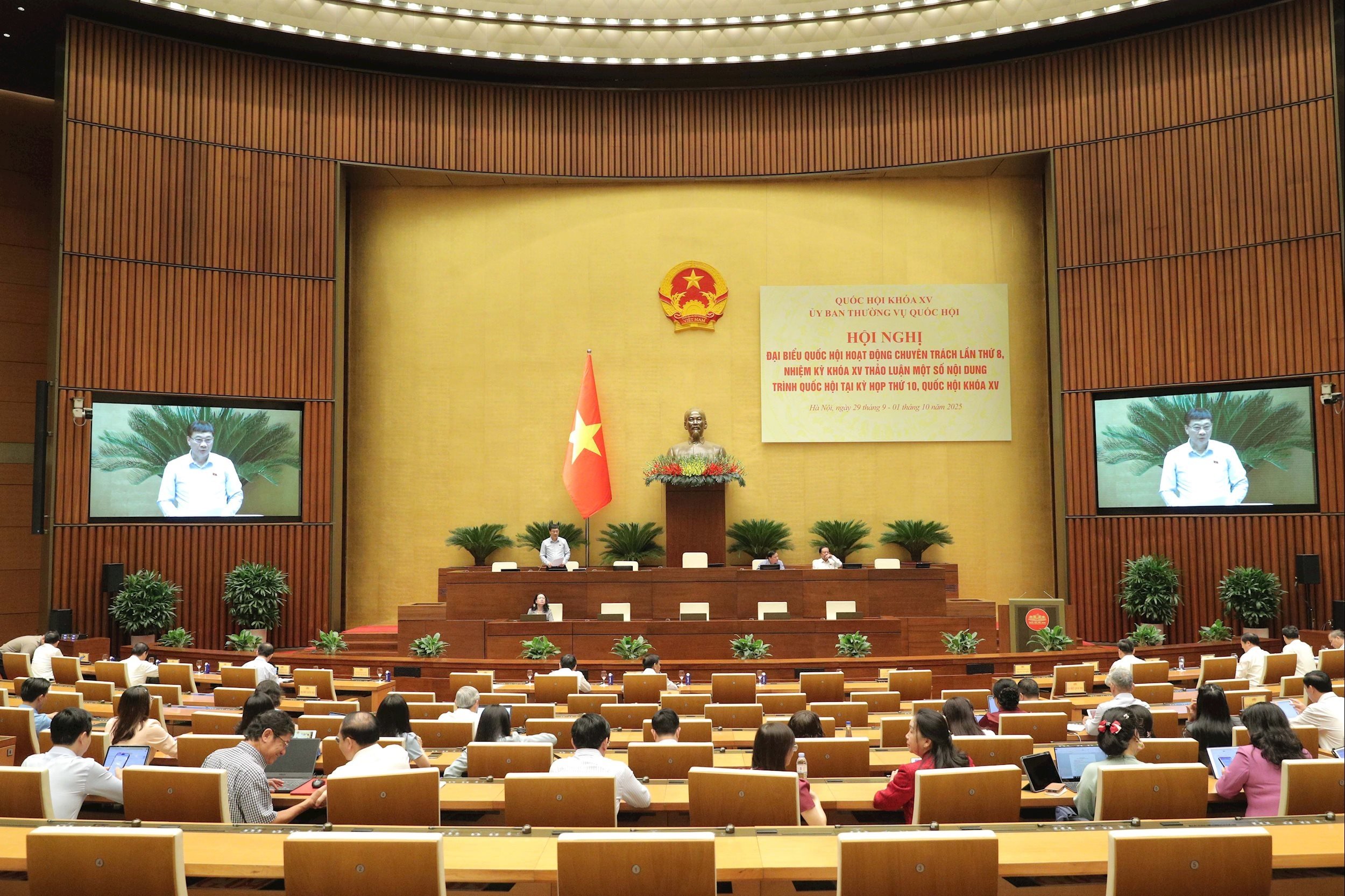
Increase accountability and transparency
The National Assembly deputies all agreed to develop and promulgate the Law on Thrift and Anti-Wastefulness to replace the current Law on Practicing Thrift and Anti-Wastefulness. Because, in the past, waste still occurred in many areas, from state budget management, public investment, public asset management to apparatus organization and labor management and use. Many cases of waste have caused great damage to the economy , reduced people's trust and affected the reputation of the state apparatus.
In the context that the whole country is implementing administrative reform, digital transformation and preventing and combating corruption and negativity, according to delegates, the National Assembly's consideration and approval of the Law on Thrift and Anti-Waste not only aims to save resources and combat waste but also contributes to improving discipline, order, accountability and increasing transparency in state management activities and in the whole society.
Concerned about publicity and transparency in practicing thrift and fighting waste, National Assembly Deputy Dang Thi My Huong ( Khanh Hoa ) emphasized that the provisions on this content in Articles 12, 13 and 14 of the draft Law are core provisions, because if publicity and transparency are not complete, all measures to save and fight waste may find it difficult to promote real effectiveness.
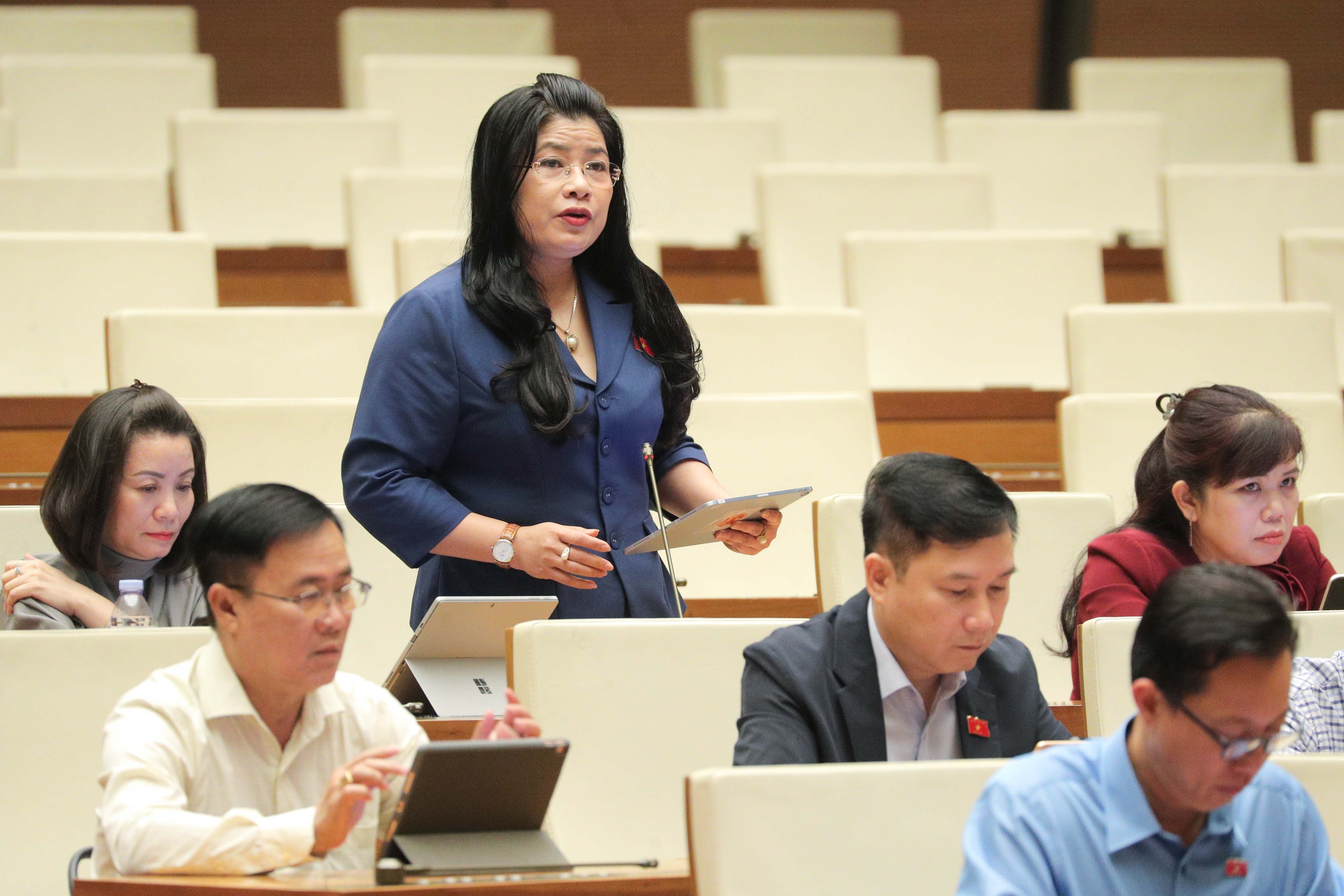
Appreciating Article 12 of the draft Law for clearly stipulating mandatory disclosure contents, especially the requirement to disclose wasteful behavior and handling results along with information about violating agencies, organizations and individuals, delegate Dang Thi My Huong emphasized that this is a new regulation that contributes to strengthening deterrence, accountability and is also a tool for people to monitor. However, in order for this regulation to be put into practice, the delegate suggested that the drafting agency should clearly stipulate the time for disclosure, because if there is no time limit, disclosure may be delayed, reducing the effectiveness of supervision.
According to the delegate, it is necessary to supplement the appropriate form of disclosure for each type of information. For example, national strategies can be widely disclosed, but for cases of waste related to civil matters, it is necessary to specify the level of information to ensure transparency and avoid violations of individual privacy rights according to relevant laws.
In particular, according to delegate Dang Thi My Huong, the draft Law needs to supplement regulations on sanctions in cases of non-disclosure, incomplete disclosure or formal disclosure. In practice, many agencies and units only disclose information to cope with the situation, post it in places that few people know about, or disclose it late, making it impossible for people to access information.
Regarding the form of publicity, some delegates suggested that, in addition to the current implementation in the electronic environment and press, the drafting agency should study and supplement the form of public posting at the agency's headquarters (such as the headquarters of the People's Committee of the commune, ward, etc.) or announce through the loudspeaker system to ensure that all people have the opportunity to access and that localities also have more forms to choose from in accordance with the actual situation and conditions. Along with that, add specific regulations on the responsibility of the head in not implementing, not fully implementing, or implementing public disclosure in a formal way on thrift and anti-waste.
Regarding the responsibilities of State agencies, National Assembly deputies proposed adding a provision on the responsibilities of the State Audit, because this agency plays a very important role in detecting violations of the law, including violations of thrift and anti-waste. At the same time, review the responsibilities of agencies in handling the conclusions and recommendations of the State Audit related to waste, to avoid the situation where conclusions and recommendations are not thoroughly handled.
Norms and standards are not hard measures.
Regarding the provision and processing of information on waste detection and the protection of waste fighters as stipulated in Article 6 of the draft Law, National Assembly Deputy Nguyen Minh Tam (Quang Tri) suggested that it is necessary to study and stipulate more clearly the rights and responsibilities of agencies, organizations and individuals in providing information on waste detection. This content is currently regulated scatteredly and unclearly. In addition, it is necessary to clearly stipulate the confidentiality of information for waste fighters and their relatives as well as agencies and organizations providing information.
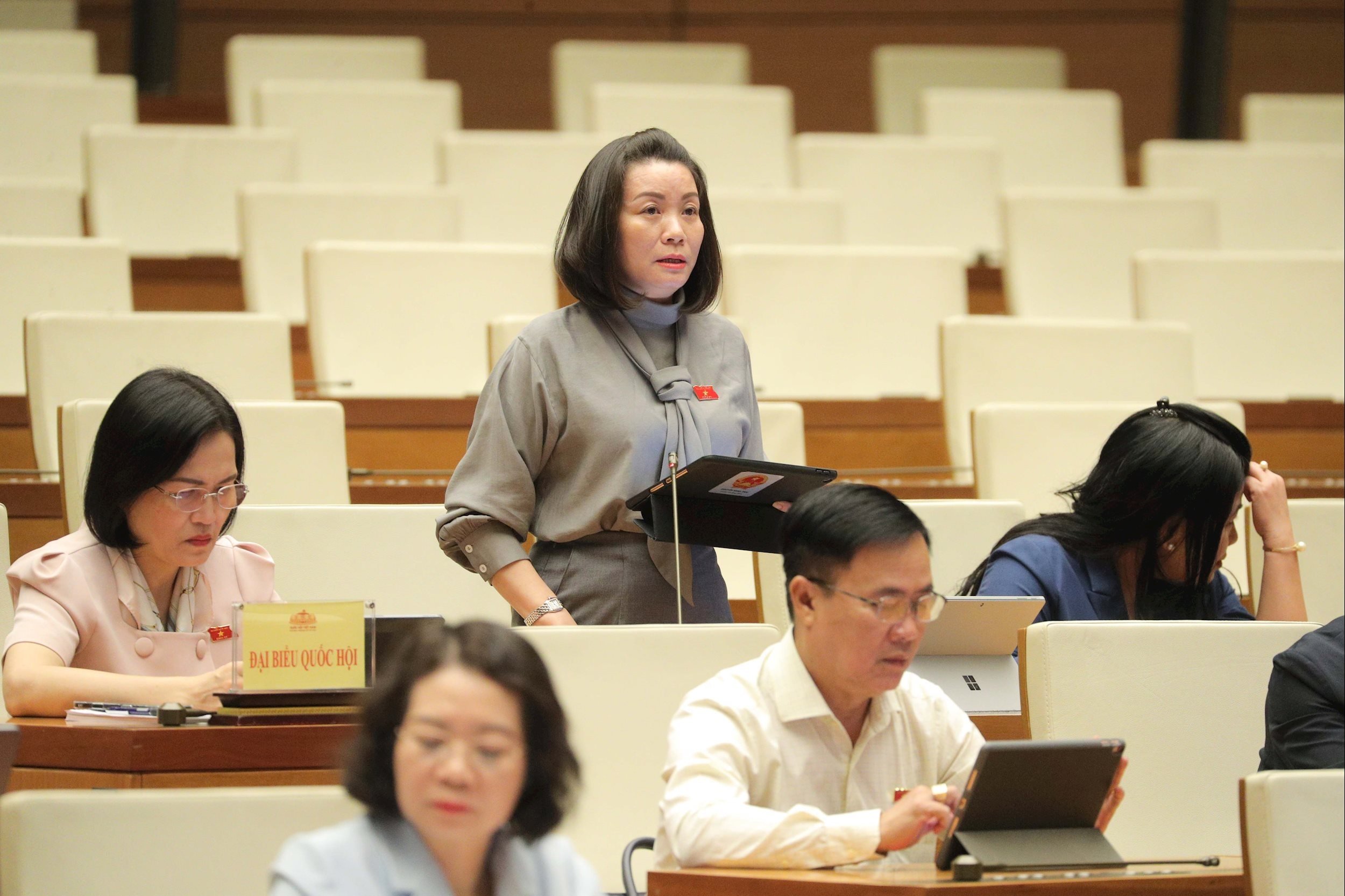
In addition to being protected, informants also need to have the right to know the results of the authorities' handling of the information they provide. "Only with this regulation can we encourage people and officials to actively participate in the work of preventing and combating waste," delegate Nguyen Minh Tam emphasized.
To improve the effectiveness of regulations on handling information on waste detection, National Assembly Deputy Mai Van Hai (Thanh Hoa) suggested that the drafting agency should have more specific regulations on the responsibility of the head of the agency or organization receiving information related to waste to review and conclude. For example, in handling information on waste detection, it is necessary to classify very specifically the information directly related to the agency or organization, then the head of that agency or organization is responsible for reviewing and concluding whether or not there is waste (?). In case the information related to waste is not the responsibility of the agency, it must also be responsible for transferring it to the competent authorities for review and settlement according to their authority.
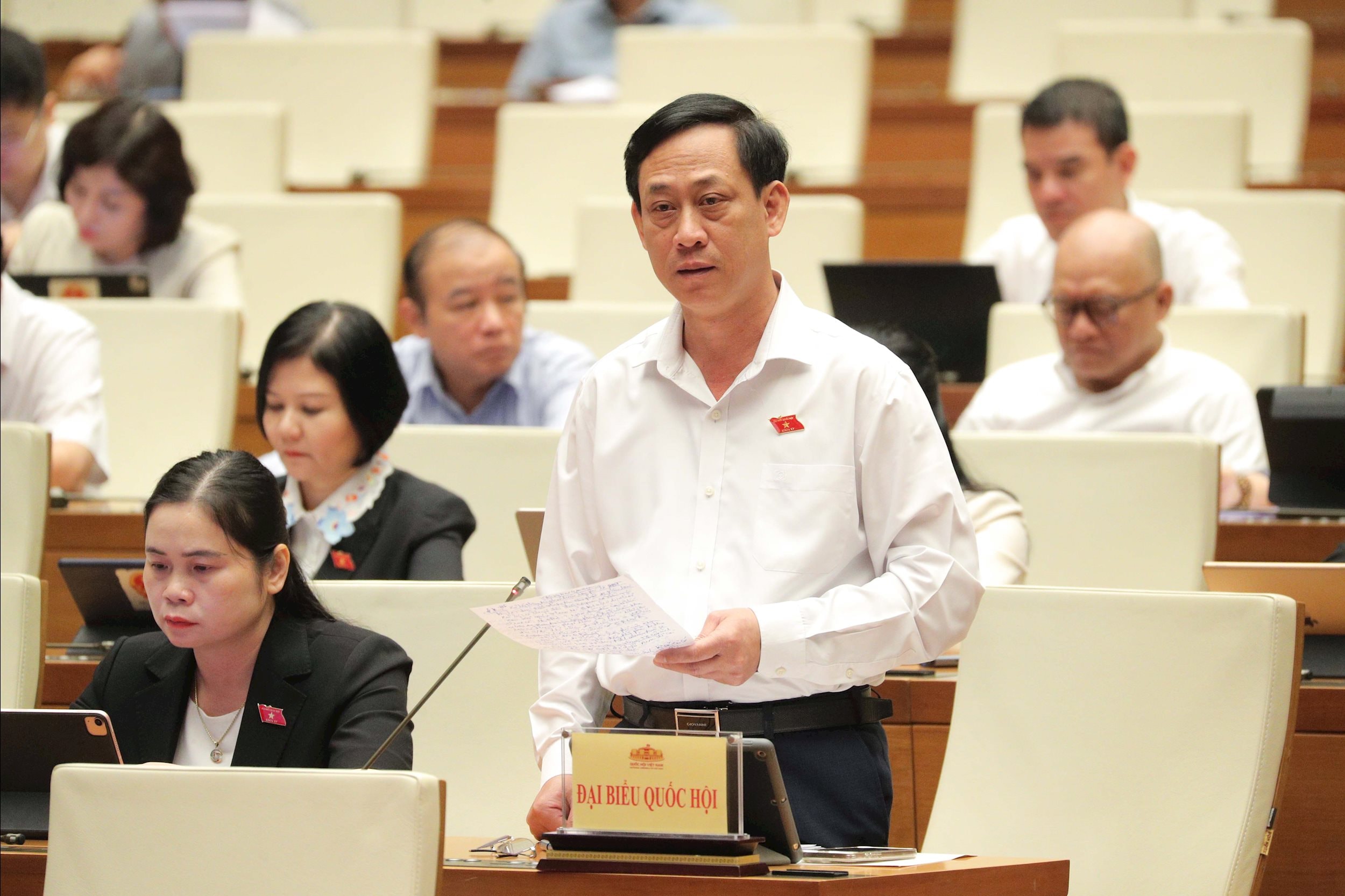
Regarding the regulations on norms and standards - the basis for determining thrift or waste, delegate Nguyen Minh Tam said that the draft Law has introduced the concept but it needs to be improved. In fact, waste is not only the use of exceeding norms, standards and regimes, but also includes ineffective management and use, failure to achieve goals, creating barriers to development or missing opportunities. On the contrary, saving must be the management, exploitation and effective use of resources, ensuring goals, not simply using below the norm.
According to delegate Nguyen Minh Tam, if the norms and standards are set higher than the task requirements, agencies and organizations may find ways to disburse all capital, causing waste. On the contrary, there are cases where the allocated capital is not used up and returned to the budget, but if it is considered "saving", it is not accurate, because the capital allocated from the beginning exceeds the need. Therefore, it is necessary to supplement regulations to properly assess the nature: whether organizations and individuals are really saving or not, how much is saved, or is there waste and to what extent?
Delegates proposed to add regulations on publicizing norms, standards and regimes in each field to facilitate supervision. If it cannot be stipulated in the Law, the Government should be assigned to provide detailed regulations.
Source: https://daibieunhandan.vn/du-thao-luat-tiet-kiem-chong-lang-phi-danh-gia-dung-ban-chat-cua-lang-phi-va-tiet-kiem-10388609.html





![[Photo] Binh Trieu 1 Bridge has been completed, raised by 1.1m, and will open to traffic at the end of November.](https://vphoto.vietnam.vn/thumb/1200x675/vietnam/resource/IMAGE/2025/10/2/a6549e2a3b5848a1ba76a1ded6141fae)


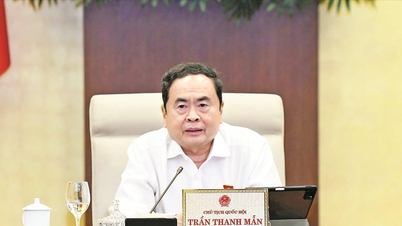





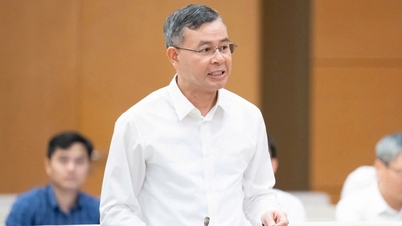


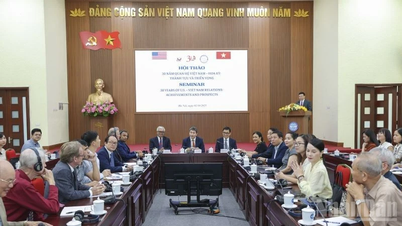


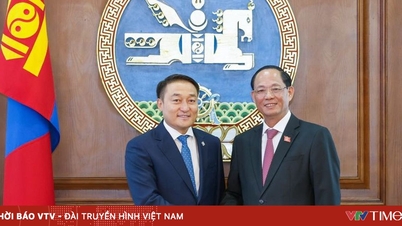
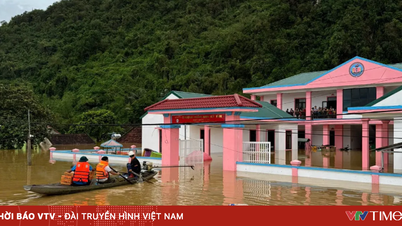
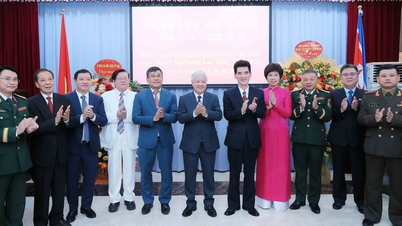

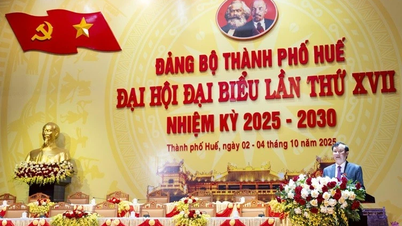





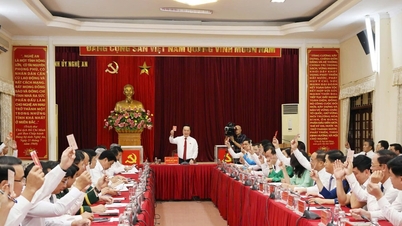
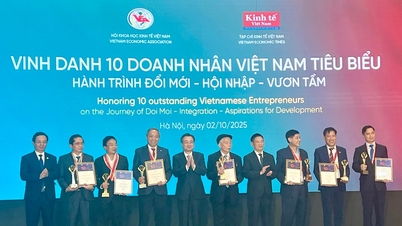

















































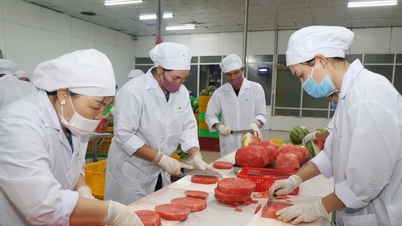

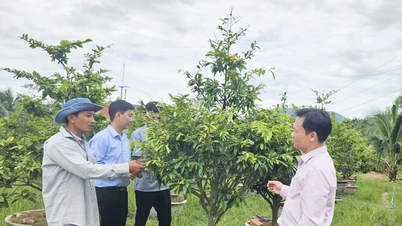


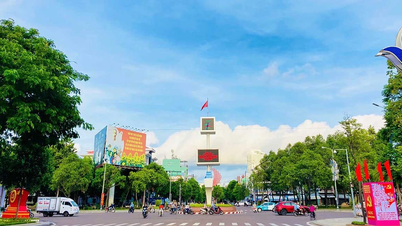
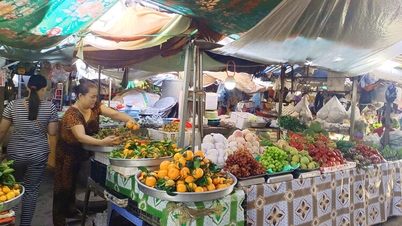














Comment (0)